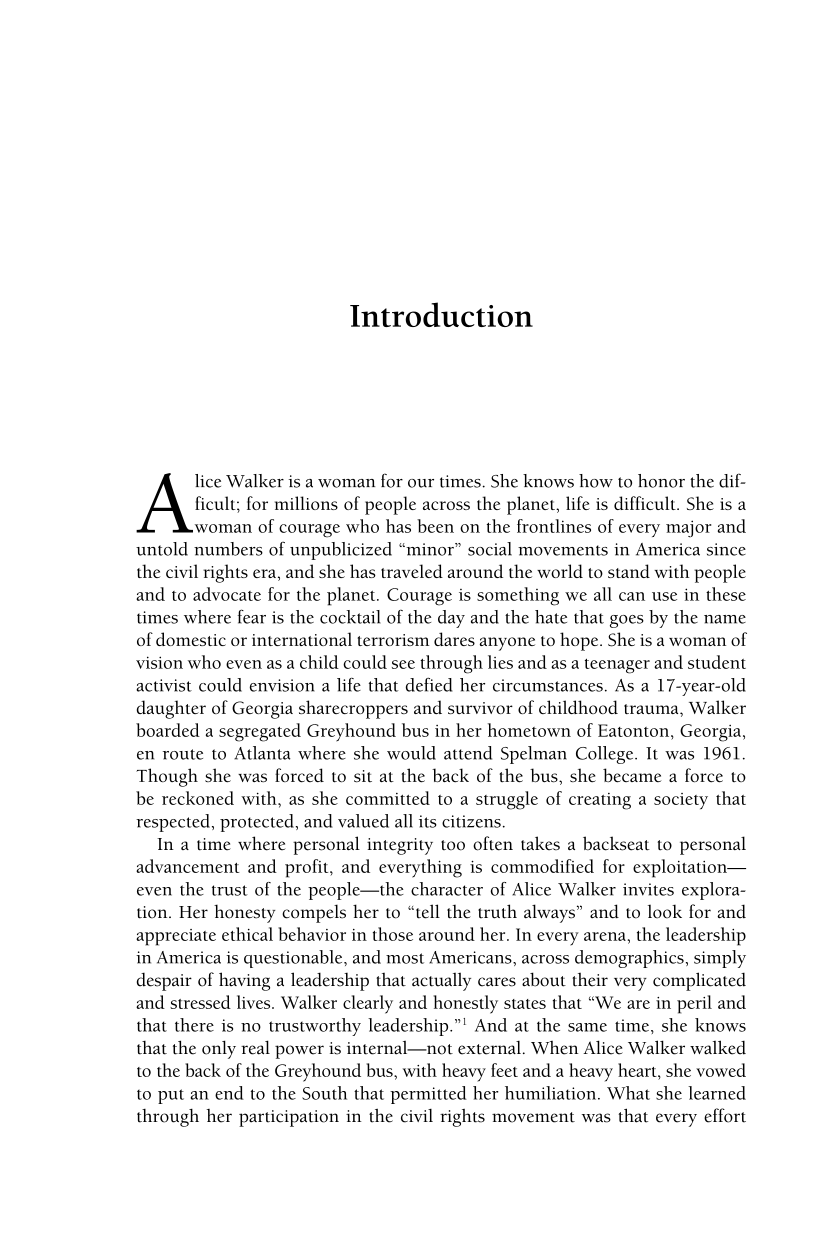Introduction
Awoman
lice Walker is a woman for our times. She knows how to honor the dif-
ficult; for millions of people across the planet, life is difficult. She is a
of courage who has been on the frontlines of every major and
untold numbers of unpublicized “minor” social movements in America since
the civil rights era, and she has traveled around the world to stand with people
and to advocate for the planet. Courage is something we all can use in these
times where fear is the cocktail of the day and the hate that goes by the name
of domestic or international terrorism dares anyone to hope. She is a woman of
vision who even as a child could see through lies and as a teenager and student
activist could envision a life that defied her circumstances. As a 17-year-old
daughter of Georgia sharecroppers and survivor of childhood trauma, Walker
boarded a segregated Greyhound bus in her hometown of Eatonton, Georgia,
en route to Atlanta where she would attend Spelman College. It was 1961.
Though she was forced to sit at the back of the bus, she became a force to
be reckoned with, as she committed to a struggle of creating a society that
respected, protected, and valued all its citizens.
In a time where personal integrity too often takes a backseat to personal
advancement and profit, and everything is commodified for exploitation—
even the trust of the people—the character of Alice Walker invites explora-
tion. Her honesty compels her to “tell the truth always” and to look for and
appreciate ethical behavior in those around her. In every arena, the leadership
in America is questionable, and most Americans, across demographics, simply
despair of having a leadership that actually cares about their very complicated
and stressed lives. Walker clearly and honestly states that “We are in peril and
that there is no trustworthy leadership.”
1
And at the same time, she knows
that the only real power is internal—not external. When Alice Walker walked
to the back of the Greyhound bus, with heavy feet and a heavy heart, she vowed
to put an end to the South that permitted her humiliation. What she learned
through her participation in the civil rights movement was that every effort
















































































































































































































































































